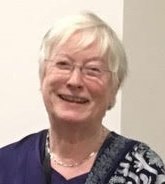Taking a strengths based, co-production approach to achieving the best lives for people and communities is the contemporary call to action for all of us working in social care and social work.
Asset based community development approaches recognise that solutions come from people and their local networks rather than professionals.
 The role of a social worker, therefore, is to work with people in partnership, supporting them to make positive lifestyle decisions, and facilitating strong and enduring community networks. The Older Women’s Cohousing Community (OWCH) is a great example of this inclusive approach and an easy choice for my latest guest blog.
The role of a social worker, therefore, is to work with people in partnership, supporting them to make positive lifestyle decisions, and facilitating strong and enduring community networks. The Older Women’s Cohousing Community (OWCH) is a great example of this inclusive approach and an easy choice for my latest guest blog.
I was privileged to have some minor involvement with supporting this project in trying to overcome the anxieties that local authority, social care and housing officers had about this proposal.
As social workers or officials in strategic roles, we should be actively supporting these approaches. Maria Brenton, UK Cohousing Network Senior Cohousing Ambassador, one of the driving forces in bringing this project to fruition, explains how OWCH came to be and highlights some essential learning for us all:

The Danes have some advice which makes sense for me: ‘Make your choices while you still can’. It is particularly relevant to the crusade I have been pursuing for the past two decades. This is to open up the range of choices available to people as they get older – particularly to establish senior cohousing as a model of choice for an active, happy life.
The opportunity to create and self-manage where you live is not currently available in the housing market, but there is growing demand for it among the new older generation who want to define for themselves how they live.
The support and companionship of a cohousing community offers the possibility of reducing demand on health and care services.
The opening of ‘New Ground’, the purpose-built homes of 26 members of the Older Women’s Cohousing Community in High Barnet, marked a huge watershed. As Shirley Meredeen, a founder-member said of the day: 'The culmination of nearly two decades of work and planning, but also the celebratory start of something new and exhilarating as the dream of OWCH becomes a reality.'
Details of the ‘New Ground’ community are available here.
Briefly, this scheme is a rather handsome building of 25 self-contained flats, two thirds leasehold and one third social rental. Women from their early 50s to late 80s are its new residents.
Apart from the award-winning architecture, the scheme’s most significant feature is a ready-made community, consciously constructed by OWCH. Their group-building was intentional, achieved through working together in large and small gatherings, through shared meals, social events and many participative workshops.
Early on, a set of core values was agreed which members revisited annually through self-appraisal exercises.
A membership selection policy was developed and carefully adhered to. A common understanding of what ‘mutual support is and is not’ was worked into policy. Provisions were made for conflict resolution.
This firm foundation is now being built upon, as the group comes to terms with the reality of sharing space and managing their building, the gardening, cleaning, parking, laundry, guest arrangements etc.
Mutuality is evident in everyday life, from taking cooked meals to poorly residents, to answering appeals for help with a malfunctioning boiler. The community meets each month to catch up and make key decisions; the building's circulation spaces are designed for easy and casual social interaction. It is a happy and peaceful place.
Being involved from the beginning in choosing the architects, designing the building, helping with the long struggle to get planning permission and overseeing the construction, has reinforced a clear sense of ownership and investment among OWCH members. They worked hard to combat the deafness of local authority middle managers in both housing and adult social care who believed they had quite enough older people in the borough already.
If you were to ask women in the group why they have worked so hard to be together, you would hear ‘I did not want to end up like my old mum, isolated and lonely’, ‘I did not want to be dependent on my children’, or ‘just the thought of being in some day-centre singing "Daisy, Daisy" horrifies me’ or ‘I want a life where I take the decisions and I am not done unto’. They are aware that 60 percent of women over the age of 75 live alone. They know that very many old people see no-one and have only the TV for company.
What can be learned from OWCH?
Opening up choices to older people means seeing them as adults and supporting their capacity for ‘agency’. It means forming genuine partnerships through co-production, supplementing their skills with professional skills. It means active community development – at the very least, involving recipients of services or housing schemes in choices and decisions at a project's instigation, rather than as passive consumers at the end when all decisions have been made.
If older people were empowered and encouraged to do half of what OWCH has done, there would be fewer lonely people around, and health and wellbeing would be improved.